wie gut ist gots?
Es ist eines der bekanntesten Siegel bei Textilprodukten: Der grüne Kreis mit dem weißen Hemd zertifiziert immer mehr T-Shirts, Kinderkleidung und Bettwäsche nach dem GOTS-Standard. Was genau bedeutet das?
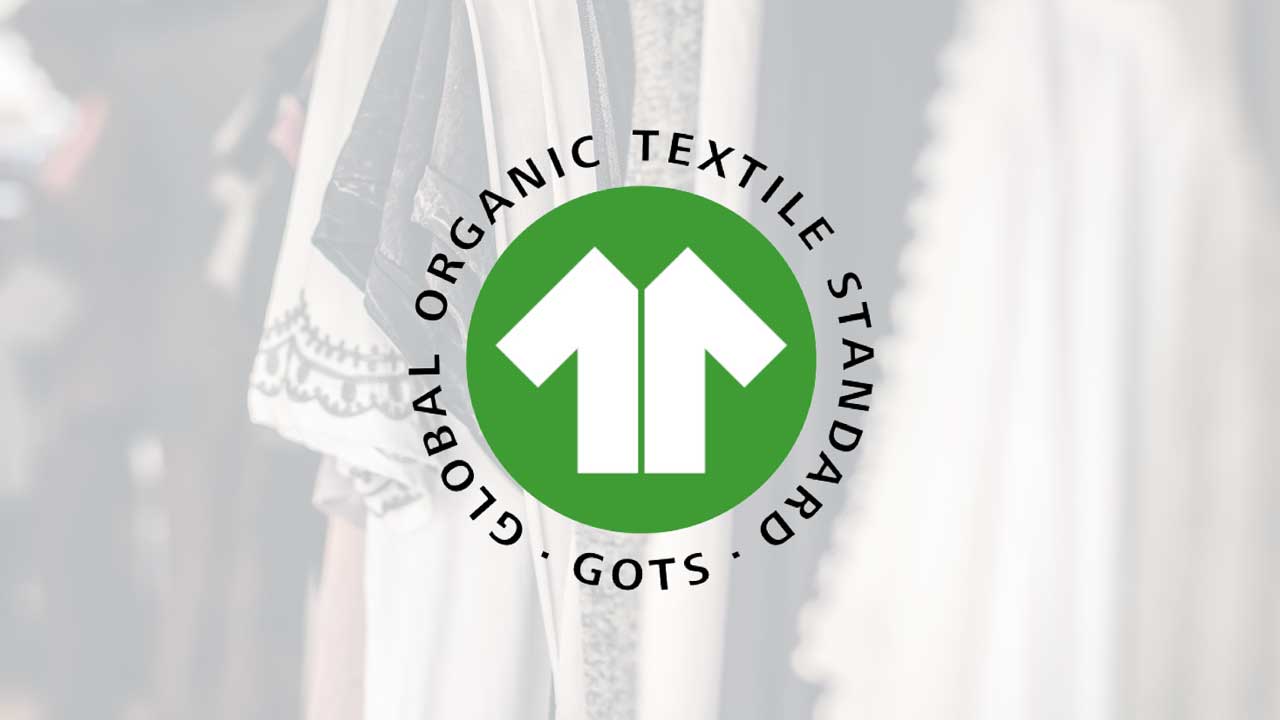
GOTS steht für „Global Organic Textile Standard.“
Das Siegel wird von der IWG (Global Organic Textile Standard International Working Group) vergeben, die 2002 von mehreren internationalen Naturtextilverbunden gegründet wurde. Ziel war und ist es, für weltweit einheitliche Standards zu sorgen und den Siegeldschungel zu lichten. Aus Deutschland war und ist der Branchenverband IVN e.V. maßgeblich beteiligt, der selbst das noch strengere Siegel IVN Best vergibt.
Die drei weiteren Organisationen kommen aus England (Soil Association), USA (Organic Trade Association) und Japan (Japan Organic Cotton Association).
Diese vier Organisationen arbeiten zudem an der kontinuierlichen Weiterentwicklung des Siegels und aktualisieren alle 3 Jahre die Anforderungen und Kriterien. Die aktuelle Version GOTS 6.0 stammt aus dem Jahr 2020.
“From Field to Fashion”
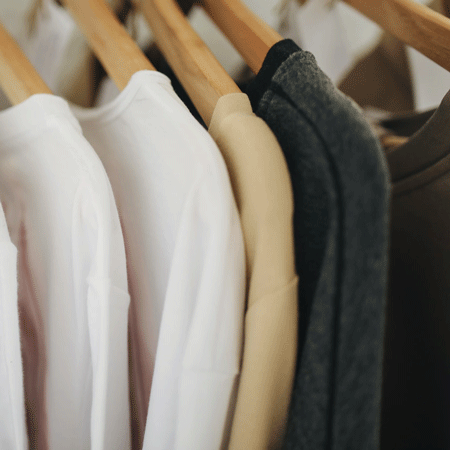
Für GOTS wird die gesamte Wertschöpfungskette zertifiziert: Alle Betriebe, die an der Weiterverarbeitung der Baumwolle bis hin zum fertigen Produkt beteiligt sind, müssen die spezifischen Anforderungen erfüllen. Dabei ist es unerheblich, ob sie im Globalen Süden oder in Europa tätig sind.
Die Produktion von Kleidung umfasst viele Arbeitsschritte, die meist in mehreren Ländern durchgeführt werden – daher gibt es nicht viele Siegel, die den gesamten Prozess im Blick haben. So prüft Ökotex beispielsweise nur das Endprodukt auf Schadstoffe, während Fairtrade (bislang) auf den Rohstoff Baumwolle schaut (das umfassendere Siegel Fairtrade Textile Production entsteht gerade erst. Mehr Infos zum Fairtrade-Siegel gibt es in diesem Artikel).
Was genau bedeutet GOTS zertifiziert? Die Kriterien
Wie es ja auch schon der Name nahe legt, ist vor allem der ökologische Aspekt bei GOTS sehr wichtig.
Das bedeutet konkret für den Rohstoff:
- Das Textil muss zu mindestens 70% (in der strengeren Version sogar 95%) aus biologisch angebauten Naturfasern bestehen – meist Baumwolle. Andere pflanzliche Fasern wären Hanf oder Leinen; aber auch tierische Produkte wie Wolle sind möglich.
- Bio bedeutet unter anderem:
- keine chemischen Pestizide und Herbizide
- keine Kunstdünger
- keine Gentechnik
- deutlich verringerter Wasserverbrauch (bis zu 90 Prozent!)
- die Baumwolle wird im Wechsel mit anderen Pflanzen angebaut, um die Bodenqualität zu erhalten (Fruchtfolge)
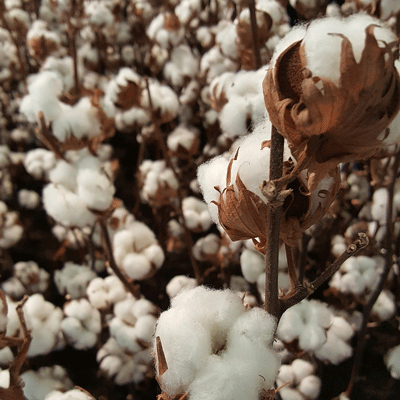
- Die übrigen 30% des Materials dürfen jedoch nicht einfach aus konventioneller Baumwolle stammen; es können entweder andere konventionelle, natürliche Fasern sein, nachhaltige Regeneratsfasern (Viskose, Tencel, Modal, Lyocell) oder recycelte Synthetikfasern.
Für die Weiterverarbeitung bedeutet das unter anderem:
- Potentiell gesundheitsschädigende Chemikalien sind verboten, z.B. Schwermetalle beim Färben und Bedrucken
- Die Baumwolle darf nur auf Sauerstoffbasis gebleicht werden
- Betriebe müssen ein Umweltschutzmanagement haben, etwa um Wasser und Energie zu sparen, und das Abwasser wieder reinigen zu können (das heißt, Kläranlagen sind vorgeschrieben).
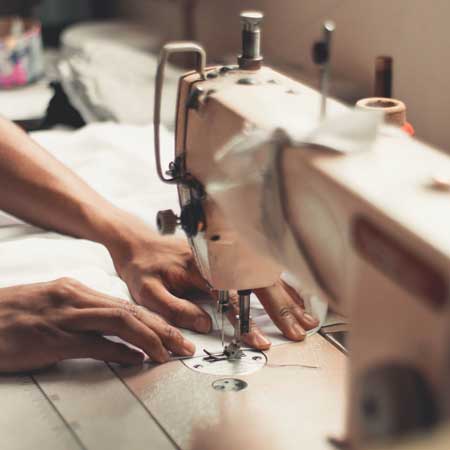
Darüber hinaus erfüllen GOTS-zertifizierte Produkte auch eine Reihe an sozialer Kriterien, die sich an den ILO-Kernarbeitsnormen orientieren:
- Keine Diskriminierung, Gewalt oder Belästigung am Arbeitsplatz
- Keine Kinderarbeit
- Begrenzung der Überstunden
- Sicherheit am Arbeitsplatz
- Recht auf Gewerkschaften
- Mindest- oder Tariflohn als Grundvoraussetzung; ein Existenzlohn wird angestrebt
Wie glaubwürdig ist GOTS?
GOTS gilt als Siegel mit sehr hoher Transparenz und Glaubwürdigkeit. Der Kriterienkatalog ist detailliert einsehbar, die Einhaltung wird regelmäßig von unabhängigen Prüfstellen kontrolliert.
Auch bei sehr günstigen Produkten – etwa, wenn Discounter GOTS-zertifizierte Kleidung anbieten – kann man sich auf die nachhaltige Herstellung verlassen. Dass die Waren dennoch sehr preiswert angeboten werden, liegt in solchen Fällen oft an den großen Absatzmengen sowie an einer Querfinanzierung: Die Marge für die GOTS-Produkte ist dann kleiner, was durch viele andere Waren aufgefangen wird.
Steht GOTS auch für Qualität?
Ja, durchaus: So ist beispielsweise die Qualität der Baumwolle höher, weil chemische Entlaubungsmittel verboten sind – die Baumwolle wird von Hand geerntet. Auch die Weiterverarbeitung geschieht unter angemessenen Arbeitsbedingungen und definierten Vorgaben für Prozesse, Materialien und Farben – das sichert auch eine hohe Qualität.
Warum sind die GOTS-Kriterien nicht noch strenger?
GOTS versucht den Spagat, möglichst strenge Regelungen einzuführen, aber gleichzeitig noch für relativ viele Unternehmen umsetzbar zu bleiben. Da aktuell lediglich 1% der weltweit angebauten Baumwolle aus Bio-Anbau stammt, ist es ein zentrales Anliegen, diese Mindestanforderung auf den Massenmarkt zu bringen und den Anteil deutlich zu erhöhen.
Darin ist GOTS recht erfolgreich: Inzwischen findet sich das Siegel auf sehr vielen Alltagsprodukten, die auch in konventionellen Geschäften angeboten werden. Gerade bei Baby- und Kinderkleidung ist es fast überall Standard geworden und in den meisten Läden zu finden.
Auch die BewusstGrün-Stoffservietten sind komplett GOTS-zertifiziert.
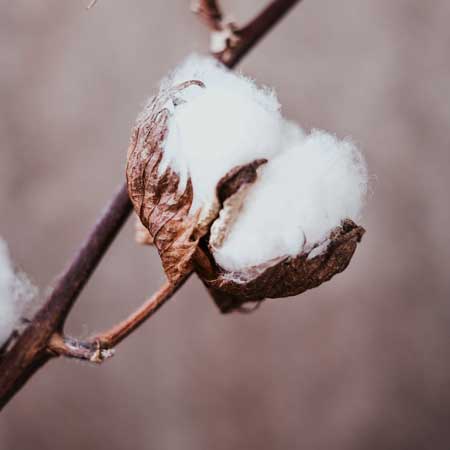
Da GOTS den Standard kontinuierlich weiterentwickelt, verschärfen sich auch die Kriterien regelmäßig.
Was wird an GOTS kritisiert?
Während es an der Transparenz, Glaubwürdigkeit und den ökologischen Kritieren nichts auszusetzen gibt, werden die sozialen Kriterien als nicht weitreichend genug kritisiert.
Zentral ist dabei, dass GOTS bislang nur den gesetzlichen Mindestlohn voraussetzt; Organisationen wie die Kampagne für saubere Kleidung (CCC) fordern jedoch die Zahlung eines “Existenzlohns” – das heißt, eines Lohns, der tatsächlich alle wichtigen Kostenfaktoren abdeckt und sogar noch etwas Geld zum Ansparen ermöglicht.
Die Differenz von Mindest- zu Existenzlohn ist in einigen Ländern sehr hoch: Die CCC setzt den Lohn zum Leben in Bangladesch etwa 5 Mal höher an als es das Gesetz vorschreibt.
Tatsächlich wird aber schon der Mindestlohn von den klassischen Unternehmen sehr oft einfach nicht gezahlt oder erst nach der Ableistung von unverhältnismäßig vielen Überstunden. In einer Untersuchung im Jahr 2019 stellte die CCC fest: Bei 43 von 45 befragten konventionellen Unternehmen gibt es keine Anhaltspunkte dafür, dass “mindestens ein Teil der Arbeiterinnen Existenzlöhne erhält”. Darunter fallen Konzerne wie H&M, Zara, Primark oder Amazon.
Würden sich Großkonzerne tatsächlich konsequent um die Einhaltung des Mindestlohns bemühen, wäre das also tatsächlich schon ein großer Schritt nach vorne – auch wenn noch einige weitere Schritte folgen müssen.
GOTS ist ein glaubwürdiges Siegel für die gesamte Lieferkette, das einen starken Fokus auf Umweltanforderungen legt. Die sozialen Kriterien orientieren sich an den Kernarbeitsnormen der International Labour Organisation (ILO). Verbesserungspotenzial besteht bei den Löhnen der Arbeiter:innen.
Quellen anzeigen
https://naturtextil.de/wp-content/uploads/2020/07/GOTS_Version_6.0_DE.pdf
https://naturtextil.de/der-ivn-wer-wir-sind/geschichte/
https://www.greenality.de/bio-baumwolle
https://www.fairticken-shop.de/FAIRTICKEN/Infos-zu-Siegeln-/-Materialien
https://de.wikipedia.org/wiki/Global_Organic_Textile_Standard
